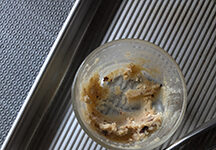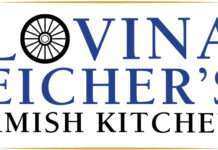(Family Features) Soy, rice, and almond milk. Are these non-dairy milks giving you the nutrients you need? The truth is, not all milk alternatives have the same nutrients as real milk, so it’s important to know what you are getting in each glass.
Dairy milk is the top food source for three out of the four nutrients of concern – the nutrients Americans are most lacking – calcium, vitamin D and potassium. Dairy milk, including lowfat and fat free, contains the same nine essential nutrients, including B vitamins for energy, high-quality protein for lean muscle, vitamin A for a healthy immune system and several bone-building nutrients, like calcium and vitamin D. Substituting another beverage for milk can lead to gaps in calcium and other key nutrients like protein, phosphorous and B vitamins.1
When it comes to protein, real dairy milk packs a protein punch over almond and rice milk. For only 80 calories, just one 8-oz. glass of milk provides 8 grams of protein – that’s more than that of a large egg! To get the same amount of protein from vanilla almond milk, which has 1 gram of protein, you’d need eight cups of almond milk, which adds up to 720 calories!
There is room for all kinds of protein in your diet, but not all protein is created equal. Milk protein is a complete protein, while most plant protein sources are missing some of the building blocks your body needs. And, penny for penny, ounce for ounce, real milk offers more nutritional value than just about any other beverage you can buy.
See how easy it can be to incorporate milk into your diet with this recipe. For more recipes, visit MilkLife.com.
Apple-Raisin Breakfast Quinoa
Makes: 5 servings, 2/3 cup per serving (about 3 ounces of milk per serving)
1 cup quinoa, rinsed according to package directions
1/2 teaspoon ground cinnamon
2 cups – lowfat or fat free milk
1/2 cup water
3 tablespoons brown sugar
1 tart-sweet apple (such as Braeburn), chopped
1/2 cup raisins
1/3 cup chopped toasted walnuts
Toast quinoa and cinnamon in medium saucepan over medium heat, stirring often. Cook until quinoa is golden and cinnamon is fragrant, about 2 minutes.
Add milk, water, and brown sugar, bring to a simmer, and cover. Reduce heat to medium-low and cook until liquid is absorbed, 20 to 25 minutes.
Fold in chopped apple, raisins, and walnuts and let stand a few minutes, covered, to heat through. Serve with additional milk.
Nutrition
300 calories; 7 g fat; 0.5 g saturated fat; 0 mg cholesterol; 10 g protein; 53 g carbohydrates; 4 g fiber; 5 mg sodium; 163 mg calcium (16% of daily value). Nutrition figures based on using fat free milk.
1 Fulgoni, et al. Nutrients from dairy foods are difficult to replace in diets of Americans: food pattern modeling and an analyses of the National Health and Nutrition Examination Survey 2003-2006. Nutrition Research. 2011
Source: MilkPEP




